- Home
- slideshows
- miscellaneous
- A retired Royal Marine and amputee just rowed solo across the Atlantic in 60 days, shattering the previous record
A retired Royal Marine and amputee just rowed solo across the Atlantic in 60 days, shattering the previous record
Spencer served three tours in Afghanistan and one in Iraq. But he did not lose his leg in a war zone.

The injury was devastating for Spencer, both physically and mentally.
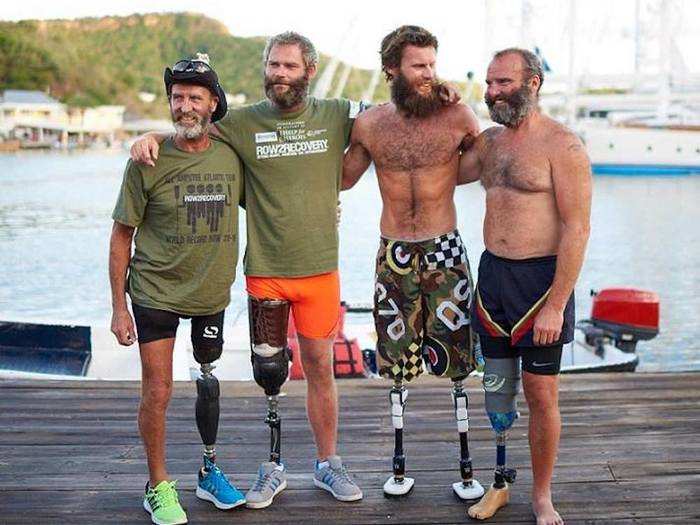
"I was someone who defined themselves by physicality," Spencer said. "[I] woke up in the morning a disabled man. And I thought the person that I was had gone ... and I'd have to redefine who I was."
Rowing became an important activity for Spencer. In 2015, he rowed 3,000 miles across the Atlantic with the help of three other veterans, all of whom have lost at least one leg. The group was at sea for 46 days.
For his solo Atlantic crossing, Spencer rented an English fiberglass rowboat designed for a single passenger.
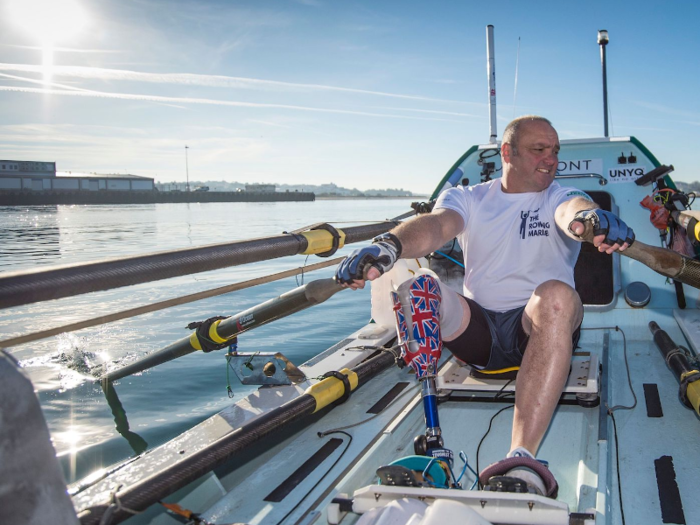
The 7-meter-long boat has an auto-helm system that steered for him, so Spencer just had to focus on the rowing.
The 49-year-old embarked from Portugal in January.
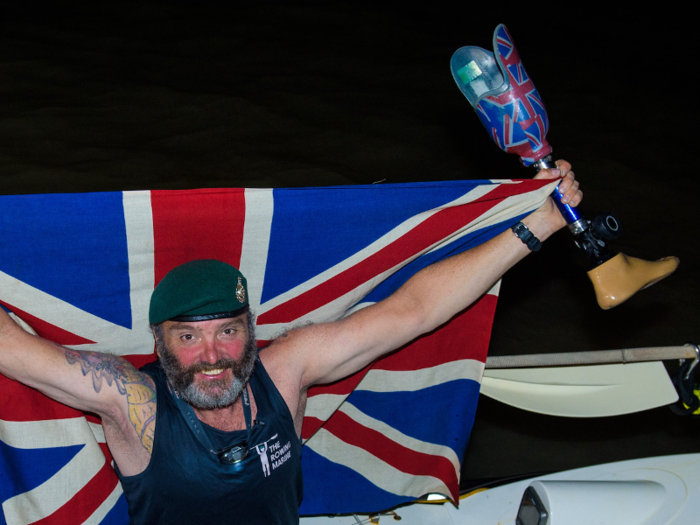
Spencer used his rowing quest to raise money for two charities: The Royal Foundation Endeavor Fund (a pet project of Prince Harry's) and the Royal Marines Charity.
Spencer wore a specialized prosthetic leg for rowing — it has an ankle joint built for lots of sitting and pushing.
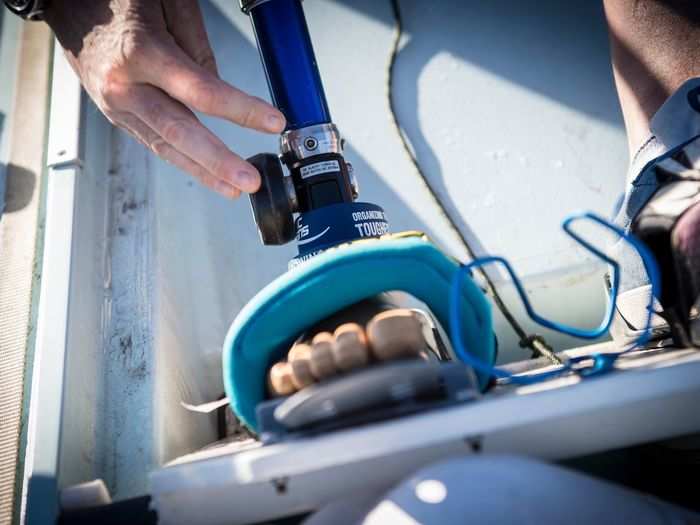
Although Spencer had the auto-helm system to steer for him, he still had to keep a constant eye on where the boat was in relation to the waves to avoid capsizing.
Because he had to be constantly monitoring his surroundings, Spencer said he never slept for more than two hours at a time.
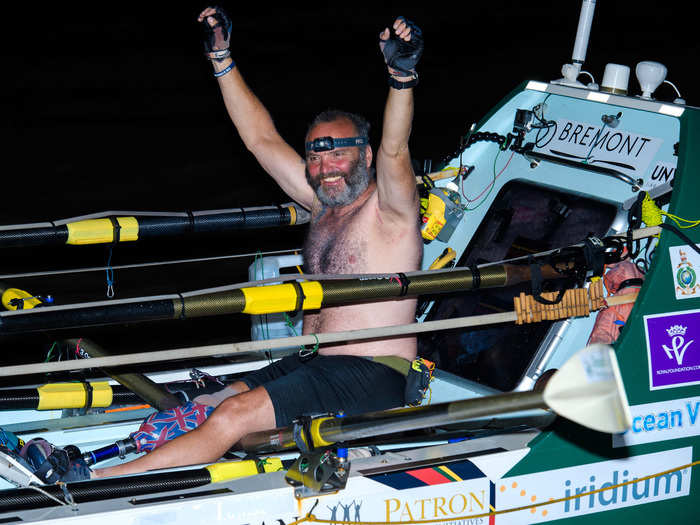
"You're constantly worrying about where you are, what's happening around you," he said.
Spencer said it was scary to be alone when things got "hairy" and tall waves surrounded his small boat. He also often radioed to big cargo ships, reminding them he was there. And he had a satellite phone on board.
Just weeks into his trip, Spencer said he hit a physical wall. "You can't relax," he said. "That was the hardest part for me. Not being able to relax for a second."
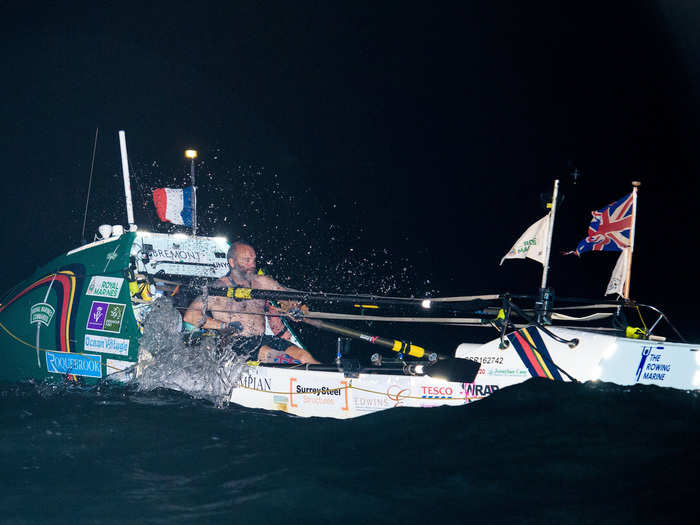
Spencer heard that Ralph Tuijn, a Dutch rower, was attempting to set the same record and was close on his heels. Tuijn departed a few days after Spencer and was tracing the same route. His goal was to finish the course in about 50 days.
"I knew that I had a race on, so I set out really fast. Actually, it was too fast," Spencer said. "I had nothing in reserve, it was just really, really difficult."
But Spencer pushed through, and Tuijn wound up stopping in the Canary Islands to fix his boat's batteries. In the end, Tuijn had to turn around and call it quits.
On the boat, Spencer ate freeze-dried high-energy rations, allotting 6,000 calories a day for what he expected would be a 90-day journey. A solar-powered desalination machine turned sea water into stuff he could drink.
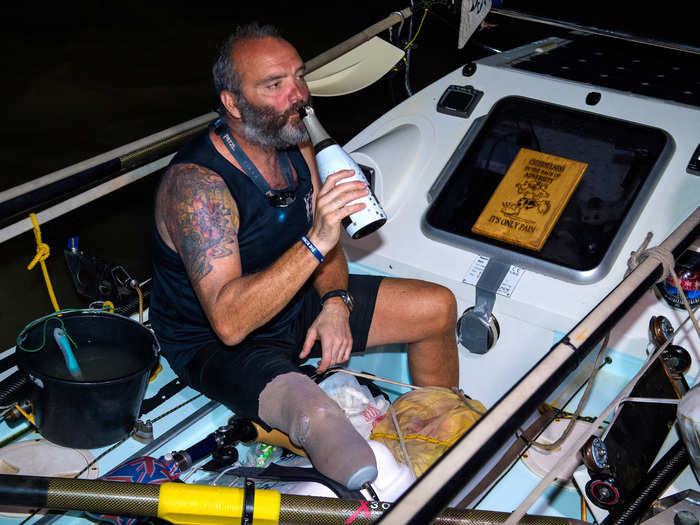
Spencer had a bottle of whiskey on board, but he was so nervous that he dared not sip it for fear of losing concentration at a critical moment. He was in constant reaction mode, he said, just waiting for something to go wrong.
"My mantra in getting ready for it was, I'll be fit, fat, and strong," Spencer said. He reported that he lost "three stone" (42 pounds) in his two months at sea.
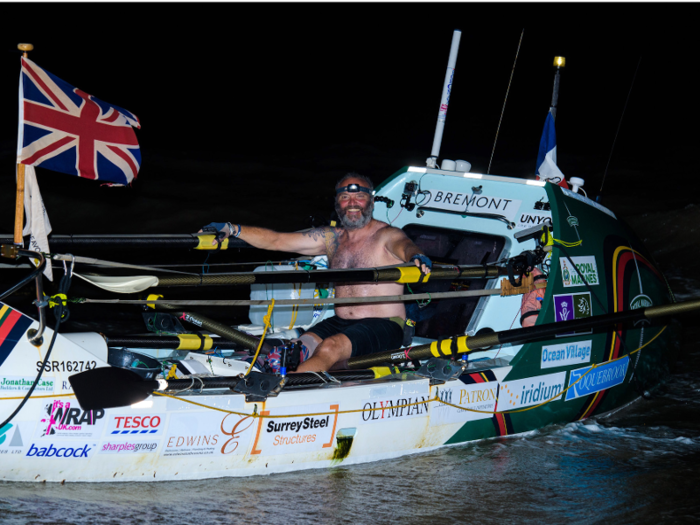
The most important part of preparing to cross the ocean for Spencer was the fattening up.
"You need those reserves to lose," he said. Spencer estimated that he burned between 8,000 and 12,000 calories a day rowing the boat.
He said his former "muscly shoulders" are gone: "Burning that many calories, your body goes into panic mode."
Spencer saw some remarkable marine life as he rowed. A mother sperm whale and her calf swam right under his boat, he said.
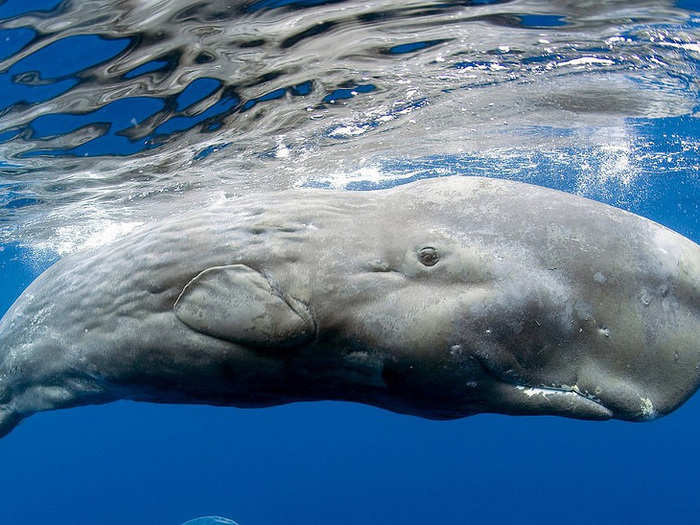
Spencer said he also spotted dolphins and turtles. Sometimes birds would even sit on the tip of his boat through the night, keeping him company in the dark.
One thing he never saw: Humans.
"For the vast majority of the time I was out there, the nearest human beings to me were on the International Space Station," he said.
Spencer reached the shore of French Guiana shortly after 1 am on March 11. His face was cherry-red from two months in the sun. He gave his wife a kiss and announced that he'd "smashed" the Atlantic-crossing record.
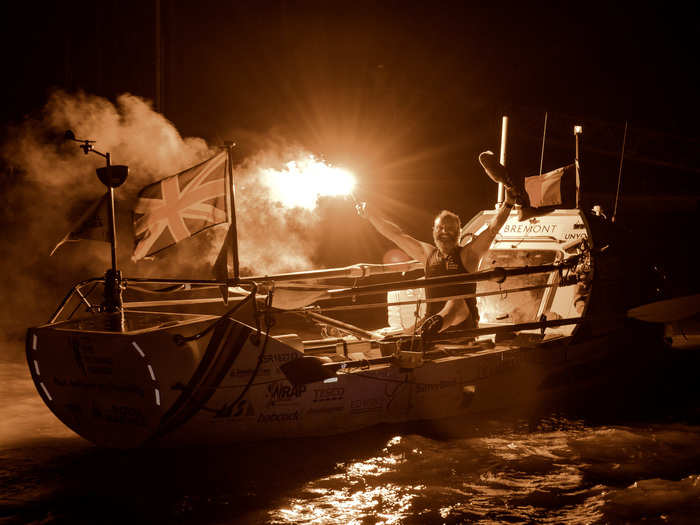
Spencer said the accomplishment is "absolutely beyond my wildest dreams."
Even though he swore that he'll never attempt that again, he admitted that "last time I rowed an ocean, I said exactly the same thing."
Popular Right Now
Popular Keywords
Advertisement